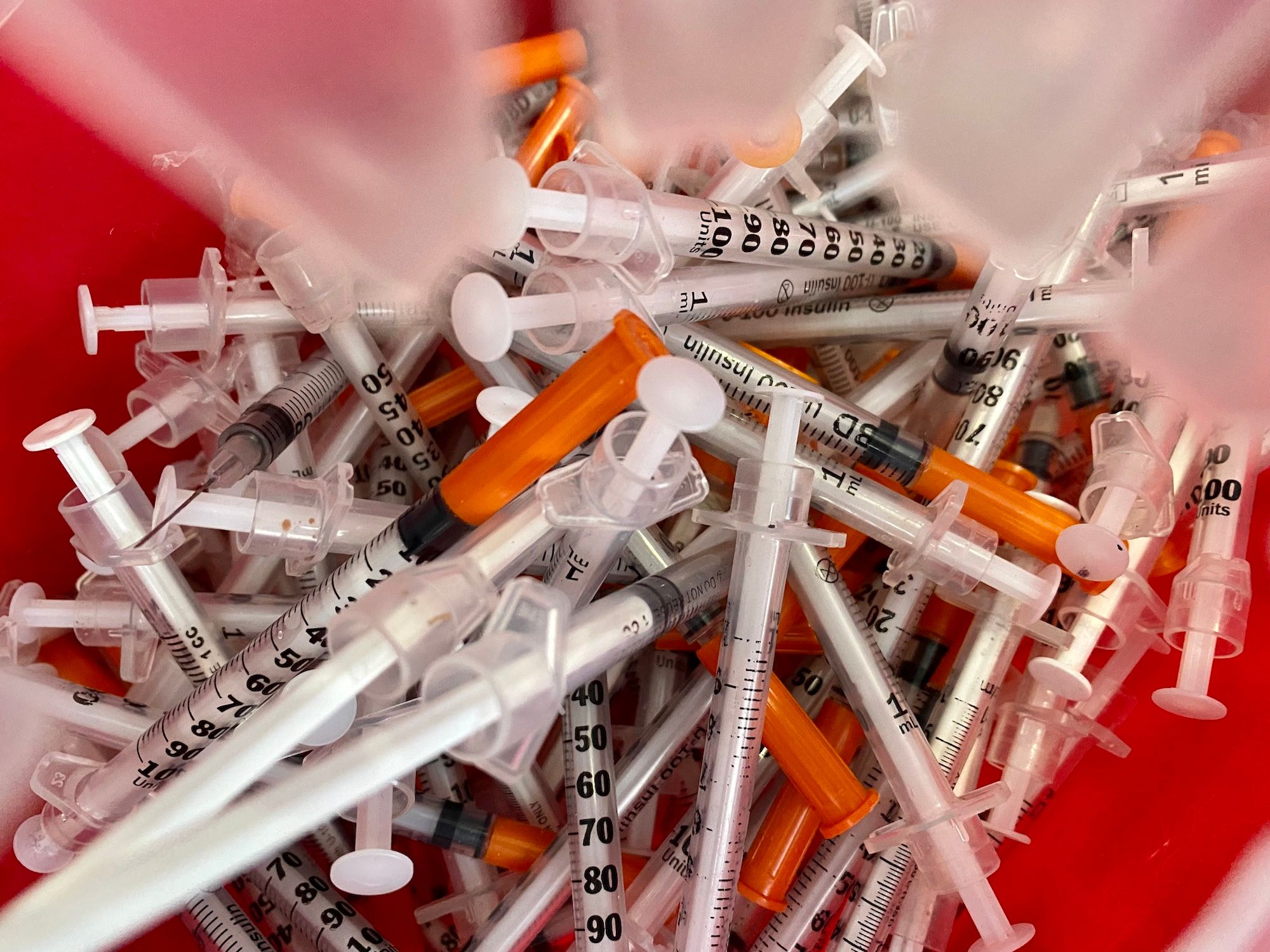Facing Record Overdoses, Roanoke Picks Priorities for Opioid Settlement Money
Roanoke hopes to spend millions in opioid relief funding on peer recovery specialists, housing assistance and training for doctors and EMTs.

Facing record overdose rates, Roanoke City hopes to spend millions in opioid relief funding over the next few years on peer recovery specialists, housing assistance and training for doctors and EMTs.
The money, allocated by the Virginia Opioid Abatement Authority (VOAA), comes from recent class-action settlements related to opioid manufacturers and distributors, including Walmart and CVS.
City Council last week approved a five-year funding plan. City officials hope that its application to the state authority will net an extra 25 percent in funding based on compliance to a set of “gold standards” listed in Virginia state code. Those funds are given to communities that pledge to spend the money on “evidence-based or evidence-informed” preventions and treatment for opioid use, as well as ongoing support for people with substance use disorder.
The additional funding is especially important for Roanoke in the wake of the COVID-19 pandemic. In the first year of the pandemic, the number of fatal drug overdoses in Roanoke doubled, going from 46 in 2019 to 96 in 2020.
Last year, 122 people died from an overdose — 105 attributed to opioids — a record for the city, and the second-highest rate in Virginia after Richmond, according to health department data released Friday.
The pandemic destroyed massive swaths of the social safety net in the U.S., leaving the few things that could be reliably accessed by people who use drugs and people experiencing homelessness even harder to access. Food banks reduced their hours, free clinics had to reduce the number of patients they could see, and many necessary supplies were hard to come by.
Wayne Leftwich, assistant to the city manager for Roanoke, said that the nature of the funds is part of what made the implementation of the VOAA gold standard requirements necessary.
“This settlement money is a little different from other pots of money we usually work with,” Leftwich said. “Each of the settlements have different requirements, and part of the gold standard is to make sure we meet the requirements of all the settlements.”
Danny Clawson, executive director of the Virginia Harm Reduction Coalition (VHRC), one of two mobile drug outreach providers in the Roanoke Valley, said that for the new funds to do the greatest good, the allocation can’t only focus on treating drug addiction, but on providing food and housing assistance for people with substance use disorder.
“Yes, VHRC works to keep people alive, and that is vital,” Clawson said. “But what’s the point of staying alive if you don’t have food and housing?”
VOAA’s gold standards specify that some of the money should be used for housing and other assistance, as well as that the city partner with existing outreach organizations, and provide some of the funding to them.
Roanoke's local government has already partnered with several of the organizations providing outreach, including VHRC and the Roanoke Valley Collective Response, a group of organizations that work together to combat the opioid crisis.
Members of City Council last week heard from city officials, as well as from members of the Roanoke Valley Collective Response, detailing a five-year funding plan for spending the opioid settlement money.
The city proposes spending $3.7 million in a regional allocation on keeping the Collective Response staffed and $150,000 on recovery housing, possibly connected to a proposed transformation of the mental health Catawba Hospital in Roanoke County.
Over the next five years, the plan also proposes $485,000 to go toward training after-school staff and families on dealing with childhood traumas; $854,000 on certified peer recovery specialists, possibly based at the sheriff’s office; and $144,000 on equipment for local outreach organizations and drug users to identify fentanyl and xylazine, a non-opioid tranquilizer used on animals.
Clawson said that xylazine is the biggest new threat facing drug users in Roanoke.
“It creates aggressive, necrotic wounds that can lead to amputation and death,” Claswson said. “And what’s worse, it’s not responsive to overdose reversal drugs.”
Xylazine, like fentanyl, is often cut into other drugs, like amphetamines and opioids. But xylazine doesn’t act on the same neurotransmitters as opioids and, as such, doesn’t respond to overdose reversal drugs like Narcan.
Robert Natt, the head of the Roanoke Valley Collective Response, said during the Council meeting that there has been a significant increase in xylazine in the drug supply in Roanoke, though he did not have exact data at the time.
Some opioid class-action suits are still ongoing, and may lead to further increases in funding in coming years as they are settled.
Tim Spencer, the city attorney for Roanoke, sits on the board for the VOAA. He estimated that “about two-thirds” of the opioid suits have actually been settled.
“The Sackler family settlement is still out there, and others, so it’s possible we’ll see more money from those in the future,” Spencer said.
During the discussion of the five-year plan, none of the City Council members argued against funding any of the included measures.
The approval of the budget will likely lead to new funds being allocated in the near future, at which point the funds will be used to implement new programs in the fall of this year.
City Manager Bob Cowell said the city will receive settlement money over the next 17 years. He said staff will update City Council annually on how the city is spending the funds.

